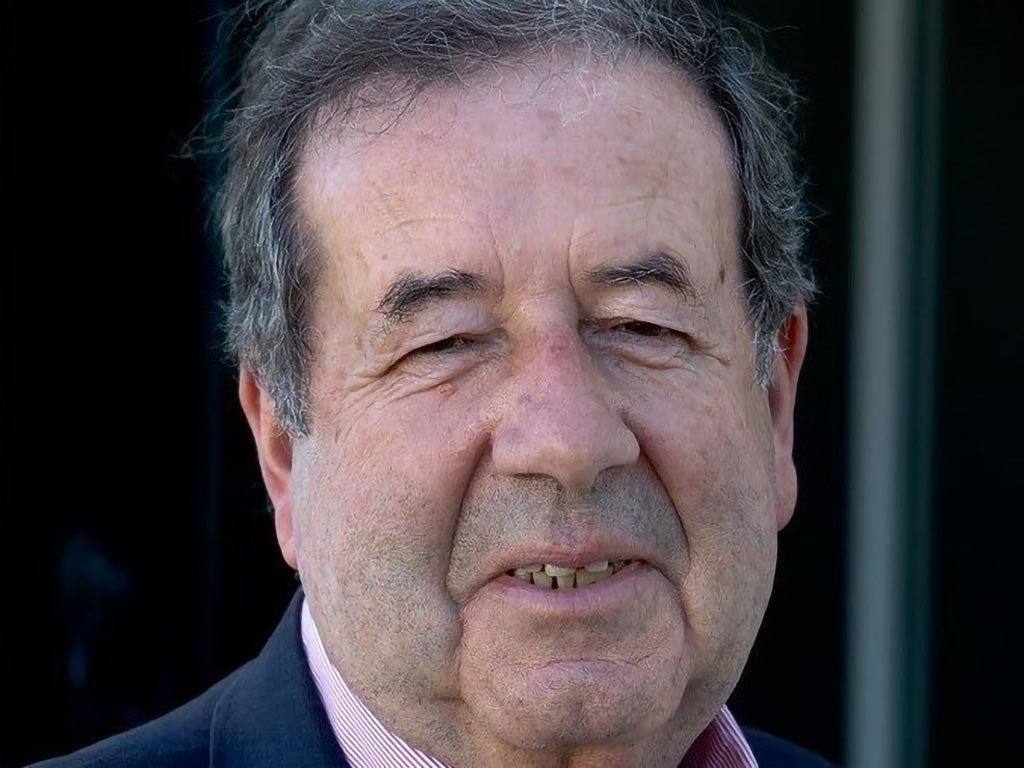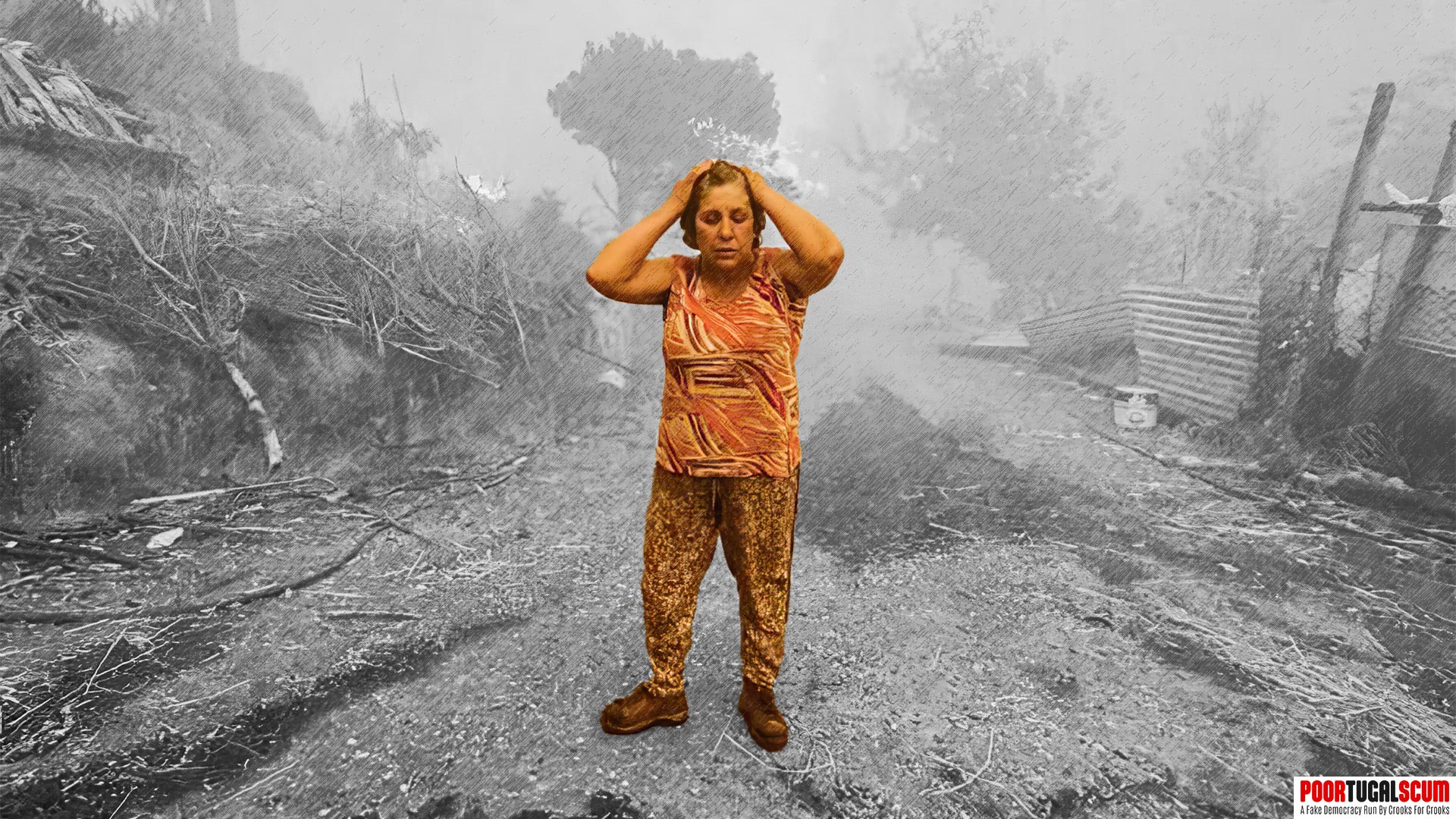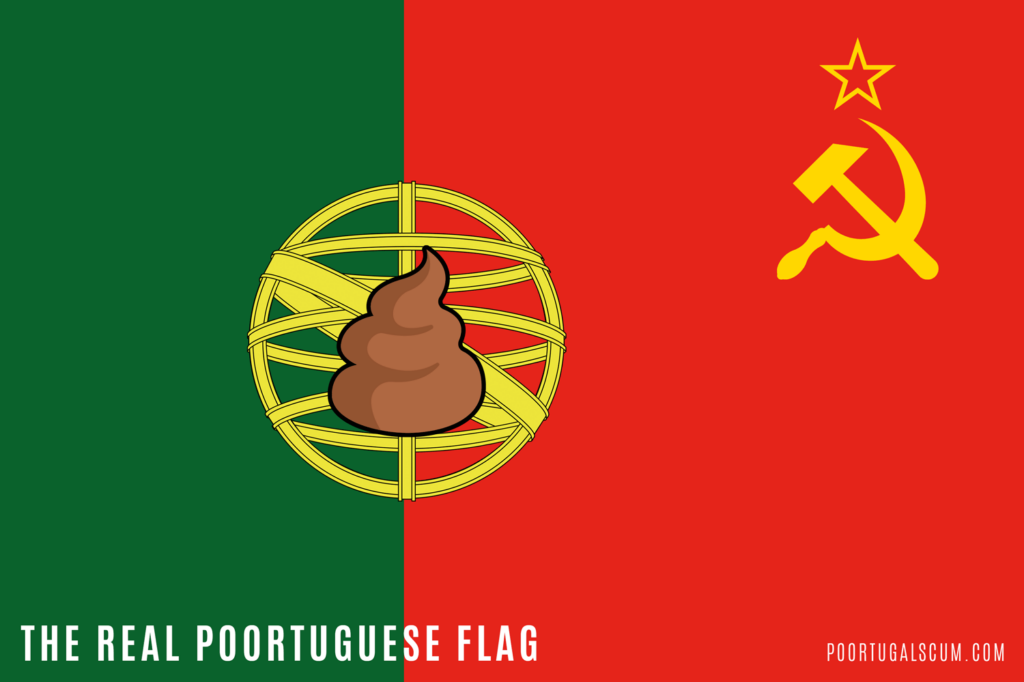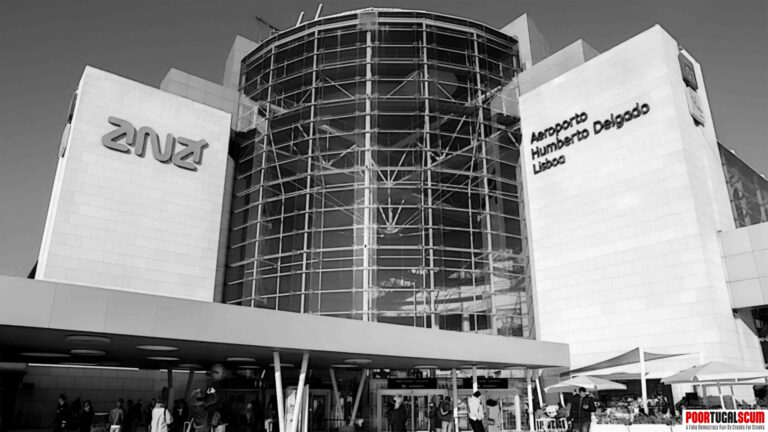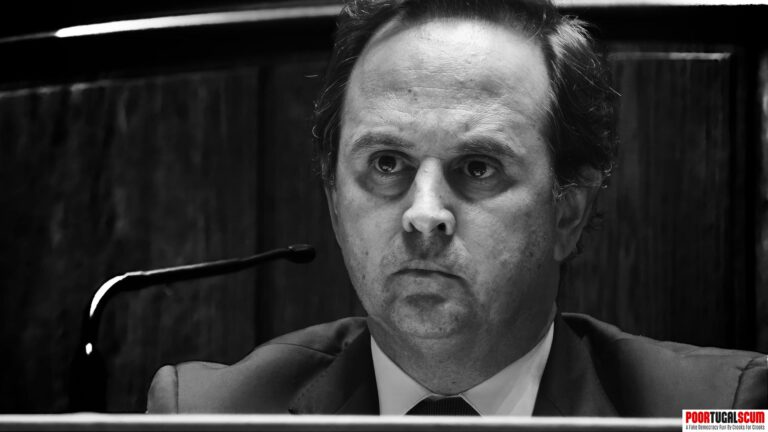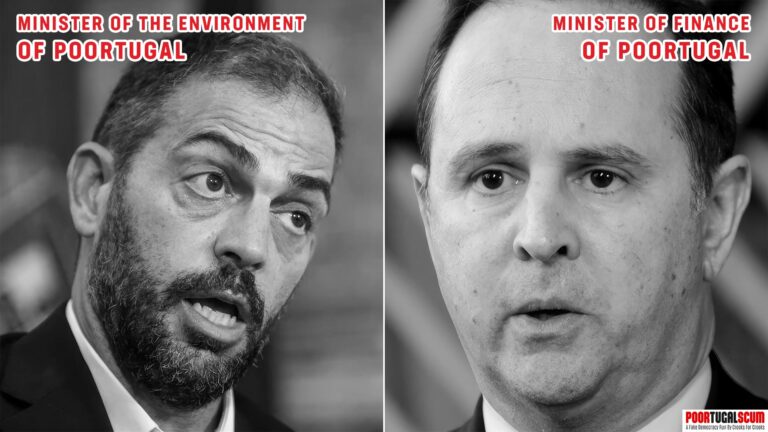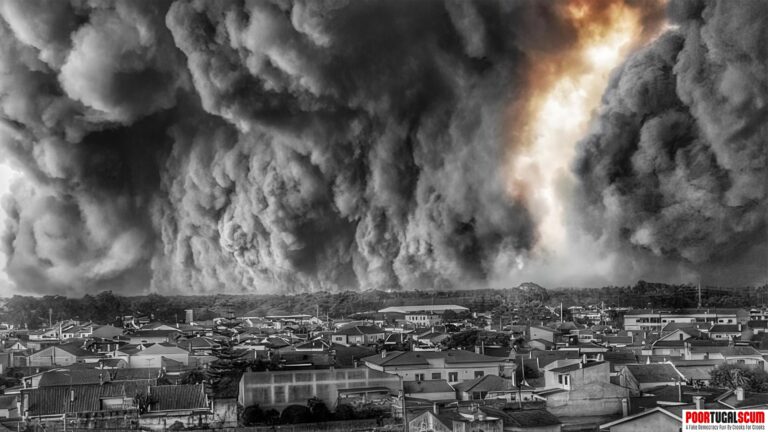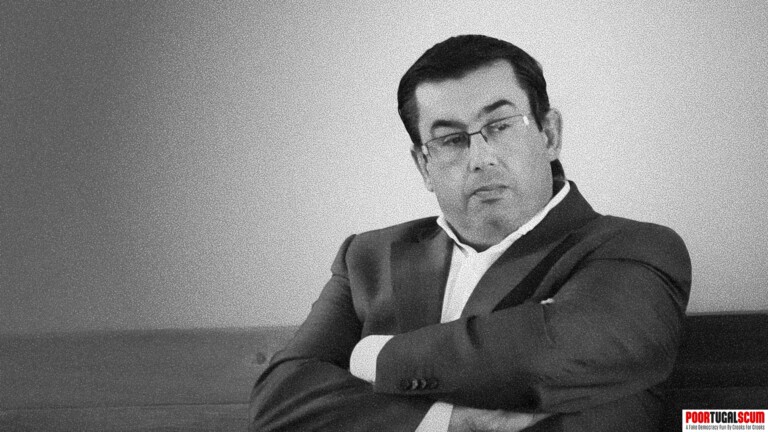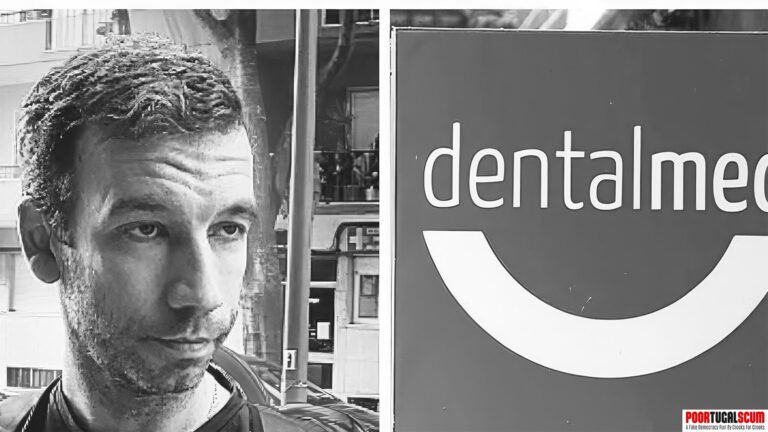Even in a disaster as terrible as the devastating fire of Pedrógão Grande in 2017, which caused 66 deaths and 253 injuries, destroyed about 500 homes, of which 261 were permanent homes, and 50 businesses, the victims were robbed, most of whom never received the aid supposedly intended for them, including millions of euros in private donations, and many people even went hungry without access to food.
Horribly, that many people burned to death in their cars as they tried to escape the fires that chased and trapped them on the highways.
The money, instead of being used to rebuild the houses burned by the demonic fires and thus help the victims at least a little, was stolen by a municipal network of unscrupulous crooks and officials who used the money of the victims to build new houses for themselves from scratch where there was no house before, as well as for other purposes, and who also received large sums, in the order of many thousands of euros, for work they never did, leaving only the money in their pockets, among many other fraudulent schemes. This network involved many people and was specifically orchestrated by the municipal and government officials themselves, in collusion with many people, including the families of the municipal leaders and other officials. And the President of the Chamber was a former judicial police inspector! If even a judicial inspector is this corrupt in Portugal…
This is the typical repugnant Portuguese nepotism that has no moral boundaries whatsoever and is as common as air.
Whenever we talk about Portugal, the judicial process always ends in nothing, with the case being closed by the Public Ministry with the usual laconic phrase “the case was archived for lack of evidence of a crime”.
As always in Portugal, no one lifted a finger or raised a voice against this appalling injustice and the heinous criminals who perpetrated it against these defenseless people who lost everything, including their closest relatives, children, parents and grandparents. The only thing that has been heard in that unscrupulous country has been an absolute ice-cold and cowardly silence from the entire Portuguese civil and non-civil society. As is always the case.
I really can’t think of a more villainous, despicable and rotten country in the world than Portugal! It should not even exist!
The following article is a translation (mostly MT). You can find the link to the original website at the end of it.
The cronyism and irregularities that haunt fires in Portugal
A year and a half after the tragic fires that shook the country, there are those who still haven’t recovered anything they lost. TVI has witnessed this over the last few months, through several works that revealed failures in obtaining aid
2018 comes to an end and the fires of 2017 remain far from just a sad memory, they are, a year and a half later, a still tragic reality for countless families, who lost homes, children, friends, animals, production, the livelihood of a life. There are those who have not yet recovered anything they lost and TVI has witnessed this over the last few months, with several works broadcast, which revealed irregularities in obtaining aid.
Let’s start with Ana Leal’s latest investigation, “Hectares de nada”, regarding the October fires.
This time the attention focused on farmers, who are fighting for survival, facing unsustainable situations and even reports of hunger, because Government aid is slow to arrive or does not cover the expenses of those who have lost everything.
Farmers who, in addition to being forced to go into debt in order to be helped, had to fight against technological bureaucracy and the incompetence of State technicians. TVI obtained documents that prove that there was incompetence on the part of State technicians in filling out applications for support, with lists of losses filled in with zeros.
Let’s return to Pedrógão Grande, where scandals multiply
Once again, a TVI investigation detected 30 new suspected cases of houses that burned down in June 2017 and were illegally rebuilt. At stake are vacant homes before the fire, second homes transformed into permanent residences, houses built from scratch where there were ruins before, sheds giving way to new homes.
One of the most recent cases discovered involves the cousin of the vice-president of the Chamber, Maria Margarida Guedes, and another one of the most important contractors in the region, responsible for much of the reconstruction of the houses that burned down in the tragedy. Cases in which the records of the Housing and Urban Rehabilitation Institute (IHRU) and the street view images captured before the tragedy leave no room for doubt.
Already, TVI’s first investigation into the reconstructions of Pedrógão Grande had revealed a scheme of cronyism in the allocation of donations to victims of the fires. Suspicions of fraudulent use of donations were already known, but the TVI report showed that these frauds were committed with the consent and help of local public authorities.
The president of Pedrogão Grande City Council, Valdemar Alves, and the then councilor Bruno Gomes have known, since last year, of the existence of irregularities in the process that involved the allocation of donations for the recovery of burned-out houses.
The objective was to ensure that second homes and even third homes began to appear as first homes, in order to have access to subsidies that would guarantee the recovery of their respective homes.
Unpublished testimonies, in the first person, guaranteed that they even had instructions to tamper with the application processes, forging residence addresses, with the connivance of local authorities. TVI even had access to a document that proves that Valdemar Alves managed the entire process of rebuilding the houses as he saw fit, ignoring the rules contained in the Revita Fund. A document that contradicts everything the mayor has always publicly stated.
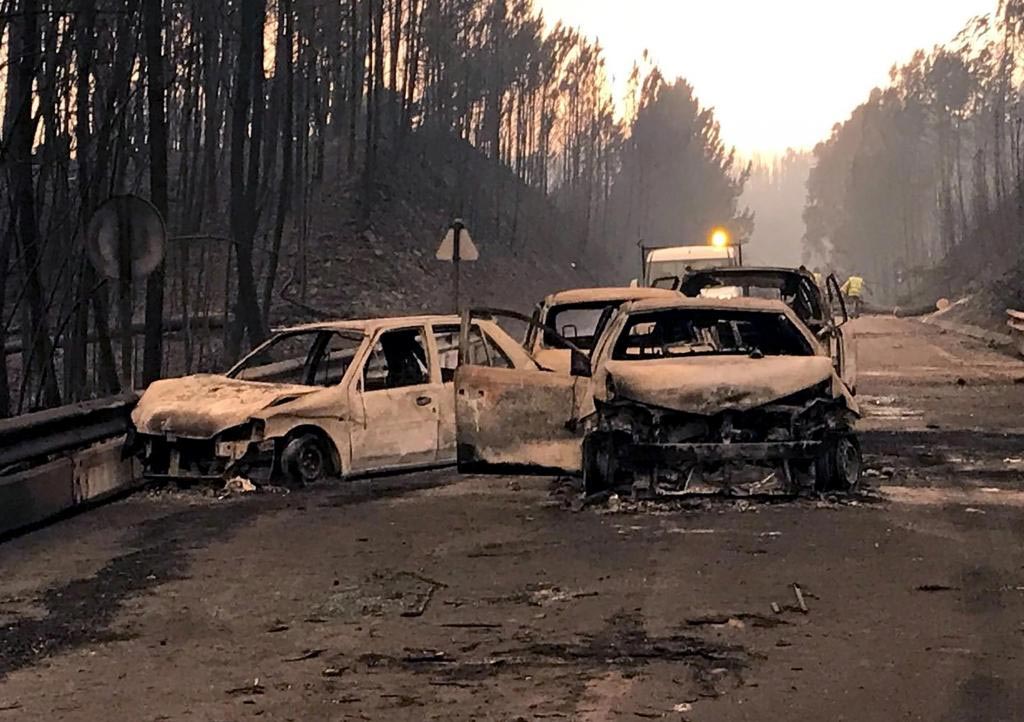
In an interview with TVI, researcher Xavier Viegas, coordinator of the independent report on the 2017 fires, revealed the difficulties his team had in obtaining information from the Chamber of Pedrógão Grande and that, on the ground, he found several irregularities, such as vacant houses or second homes that were declared as first homes.
Following the report “O Compadrio” (part 1 and part 2), the Government forwarded the investigation into the irregularities revealed in TVI’s work to the Public Ministry.
Consequently, ten people were made defendants, all applicants for support. One of them is Augusto Neves, brother of the president of the Parish Council of Vila Facaia, who admitted in the report “O Compadrio” that he lied at the request of the councilor of Pedrógão Grande, to present a property that had long been in ruins as a first home.
Also following this investigation by Ana Leal, the Judicial Police carried out searches in the Pedrógão Grande chamber.
Pedrógão and innocence
In the days following the broadcast of the report, Prime Minister António Costa admitted that “only two” of the nine reports of fraud in the reconstruction of houses in Pedrógão Grande “relate to State funds”.
The President of the Republic, Marcelo Rebelo de Sousa, reacting to TVI’s investigative work, said he hoped the allegations would be clarified by the end of the year, with “an in-depth investigation”, which has not happened so far.
It was only at the end of August that the president of the Central Regional Coordination and Development Commission (CCDR-C), Ana Abrunhosa, sent the suspicious processes reported by Visão and TVI reports to the Public Prosecutor’s Office.
Despite all the accusations, the mayor of Pedrógão Grande has always denied the existence of any irregularity as well as his involvement in alleged fraud. TVI journalist Ana Leal even challenged Valdemar Alves to show all the processes. “The president knows that all the processes were validated by him. For example, the president of the Parish Council of Graça received financing for the house of his mother-in-law, who lived with him. And they presented the electricity bill for the president’s own house. And don’t you consider this an irregularity? It’s such cronyism, because this appears in processes that he signed underhandedly”, he denounced.
Only later, after the Judiciary’s searches at the Pedrógão Grande Chamber, did Valdemar Alves admit that there could be “one or another” house rebuilt that was not a first-time home. Even so, after the “Compadrio” report, he announced the departure of the Revita Fund, a fund created by the Government to support the population and the revitalization of areas affected by the fires of June 2017 and which received contributions from 61 entities, with cash donations, goods and provision of services.
The former Attorney General of the Republic even defended the need for “special attention” to this investigation, “taking into account the underlying tragedy”, but Joana Marques Vidal was replaced by Lucília Gago in October and, to date, in addition to number of defendants, little else is known.
October and the pine forest mafia
But the allegations go beyond Pedrógão Grande. In the same year, 2017, a second tragedy shook the country, the October fires in the Central region. And much remained, once again, unexplained.
In the report “Ajuste directo”, TVI visited the municipalities of Oliveira do Hospital, Seia, Tábua and Arganil, and what they found was dramatic. In two of these municipalities, none of the burned houses had yet been rebuilt, in a process that raises many doubts and is the responsibility of CCDR Centro, which chose to award works by direct award to companies that will have received around 13 million euros.
In the first phase, it was the mayor of Oliveira do Hospital, José Carlos Alexandrino. to extend an invitation to the four largest construction companies in the municipality, to rebuild the houses that had burned down. Inexplicably, they were excluded by CCDR Centro, in order to carry out a direct agreement with companies that are not even from Oliveira do Hospital. The rejected businessmen told TVI that no specifications were presented, but rather an extensive list of 240 houses to be reconstructed for more than 12 million euros, without a rigorous survey having been carried out.
Ana Abrunhosa, president of CCDR Centro, refused to answer TVI’s questions.
In “A Casa do Vale da Vermelha”, in Arganil, TVI followed a young family, Ana, Nuno and their two youngest children, who returned to a house that no longer exists to say goodbye, for the last time, to a place they loved. where they no longer want to return, after the fires of October 15, 2017 destroyed their dream. A family that lost everything and now lives off the help of family, friends and anonymous people, a family that continues to receive psychological support and that even today cannot sleep a whole night.
Finally, TVI also collected evidence that the fire that devastated Pinhal de Leiria had criminal hands and was planned a month before the tragedy, that is, in September 2017. Several loggers, including owners of large companies and owners of factories that buy and sell wood, were gathered in a restaurant basement to plan fireworks.
The secret meetings also served to agree on timber prices. The historic pine forest was set to burn. A logger, speaking anonymously, admitted to TVI that if it weren’t for the fire there would be no wood to cut due to the high price.
TVI’s latest investigation, broadcast last November, raised suspicions of cronyism between the Institute for the Conservation of Nature and Forests (ICNF) and the loggers’ lobby. The ICNF is being accused of fraud in a public auction of burned wood from the 2017 fires. At issue is a lot sold at public auction, which was allegedly tampered with after being sold to the logger who made the complaint, raising suspicions of having there was favoritism towards the so-called pine forest mafia. A logger told TVI that, two months after purchasing the lot, the ICNF was on site marking trees that were not there at the time the auction took place.
More related news
30 new suspected cases of illegally rebuilt houses in Pedrógão
The cousin of the vice-president of the chamber may have been favored by benefiting from the reconstruction of a house where she did not live at the time of the fire and even admits to having lied with clear orders from the municipality
The Pedrógão Grande scandal is much bigger than imagined and could directly involve the current vice-president of the municipality, Margarida Guedes.
A TVI investigation detected another 30 new suspicious cases of houses that burned down in last year’s tragedy and were illegally rebuilt.
At stake are vacant homes before the fire, second homes transformed into permanent residences, houses built from scratch where there were ruins before, sheds giving way to new homes.
Everything goes in Pedrógão Grande.
The cousin of the vice-president of the municipality may have been favored by benefiting from the reconstruction of a house where she was not living at the time of the fire and even admits to having lied with clear orders from the municipality.
In the village of Campelos there are at least three new suspected cases. About 100 meters from the house where the vice-president of the chamber lives with her mother, is the house of her brother and sister-in-law. And, right next door, the house of the vice president’s cousin.
In the report, we can see in the survey carried out by the National Housing Institute, shortly after the fire, that this last house was classified as a second home. Information that the Pedrógão municipality made a clean sheet of, giving it priority in reconstruction, despite knowing that Margarida Guedes’ cousin lives and has always lived in another village.
Another of the suspicious houses is a vacant annex, transformed into a house before the fire.
The owner thus gained a new house, next to the house where he had always lived. The reconstruction of the annex will cost all of us, taxpayers, around 73 thousand euros.
Another controversial house is classified as a second home in the IHRU records, whose reconstruction will cost something like 95 thousand euros. In the village, everyone knows that the owner lives in Lisbon, including the mother of the vice-president of the council.
In Pobrais, there is talk of the parents’ house of one of the most important contractors in the region, responsible for much of the reconstruction of the houses that burned down in last year’s tragedy. It is another case of a second home being transformed into a permanent residence, when in fact the owners live in the house next door.
In Aldeia das Freiras, there is a house that is practically completed and was built from scratch in a place where there were ruins before the fire. The records of the Housing Institute and the street view images captured before the tragedy leave no room for doubt.
Controversial cases are adding up. Another house, in Vila Facaia, did not even burn, as the institute’s records also attest.
In Mó Pequena, sheds intended for garage and storage before the fire, give way to a new house, paid for by the Revita fund, for the value of almost 40 thousand euros. An inexplicable amount for works like this. There is another house that was vacant before the tragedy, but is now being rebuilt for an estimated cost of 96 thousand euros.
Yet another, in Várzeas, which is one of the most scandalous cases given its size: the largest to be rebuilt in the area, with a project that aims for nine bedrooms and possible housing tourism. The works continue, despite having been classified by the Housing Institute as a second residence. The work is budgeted at around 110 thousand euros.
In Troviscais Fundeiros, there is a house that is the house of discord. In the village, everyone knows that it is a second home. On the street below, there is a first house that burned down and is still waiting to be rebuilt. More than a year and a half after the tragedy, the owner lives in a council house whose rent is paid by social security.
Figueira is a village that is also no exception. Another example: before the fire, there was a vacant house, identified in the IHRU records. But the Pedrógão municipality gave it priority in the reconstruction for the amount of 67,500 euros, even though the owner lives and has always lived in the house opposite.
In this report, we also reveal other suspicious cases, such as Aldeia do Mosteiro, where everyone knows that a house had been vacant for a long time (as shown by IHRU records).
Ten defendants
So far, ten people have been accused.
- Augusto Neves, brother of the president of the parish council of Vila Facaia. He admitted to TVI that he lied at the request of former councilor Bruno Gomes to benefit from the reconstruction of a house that had been in ruins for years.
- José Ferreira David, former president of the Graça council, current president of the Parish Assembly.
- Carminda Moreira, mother-in-law of the president of the parish council of Graça, is another of the defendants.
- Laura David Batista, the Figueira case also reported by TVI, in which an old haystack was transformed into permanent housing. In Figueira, there is yet another defendant: Ilda Pegacho.
- Father-in-law of Paulo Pires, surveyor in the Pedrógão chamber, was named a defendant. He was the one who, after the fire, changed his tax address to a house where he never lived.
- Maria de Fátima Nunes, who changed her tax address after the fire. This is the house that was favored.
- João Manuel Caetano is the seventh defendant. He had lived in Penela for a long time. The new house is being built in Outão
- Fernando Lopes, the GNR man who lives in Lisbon, brother of an employee of the Pedrógão council: the benefited house is being rebuilt in Mó Pequena.
- Eduarda Lopes Lourenço, cousin of the vice-president of the Pedrógão Grande chamber. She also points the finger at the then councilor Bruo Gomes and the current vice-president of the Pedrógão council.
So far, none of the political leaders have been heard.
More related news
Fraud in Pedrógão homes: PJ concludes investigation and requests indictment of 44 defendants
The Judiciary Police concluded investigations into alleged irregularities in supporting the reconstruction of houses that burned in the Pedrógrão Grande fire, on June 17, 2017
The Judiciary Police (PJ) concluded investigations into the alleged irregularities in supporting the reconstruction of the houses that burned in the Pedrógão Grande fire, on June 17, 2017. 115 witnesses were questioned and 44 defendants were constituted and questioned, including Valdemar Alves , president of the Chamber of Pedrógão Grande, and Bruno Gomes. former councilor of the cabinet who was in charge of the reconstruction processes.
According to the PJ statement, the steps had to do with subsidies for the reconstruction, or rehabilitation, of permanent homes affected by the fire, in the municipalities of Pedrógão Grande, Castanheira de Pêra and Figueiró dos Vinhos.
( … )
The fire that broke out on June 17, 2017, in Escalos Fundeiros, municipality of Pedrógão Grande, and which later spread to neighboring municipalities, caused 66 deaths and 253 injuries, seven of them seriously, having destroyed around 500 houses, 261 of which there were permanent housing, and 50 businesses.
In another case, ten people will be tried in the process that investigates responsibilities in the 2017 fire that started in Pedrógão Grande, a judicial source told the Lusa agency on June 21.
Of the 13 defendants in the case, the presidents of the municipalities of Castanheira de Pera, Figueiró dos Vinhos and Pedrógão Grande in office at the time of the events are up for trial: Fernando Lopes, Jorge Abreu and Valdemar Alves, respectively.
Following the investigative debate, the court also decided to put the then forestry engineer in the municipality of Pedrógão Grande Margarida Gonçalves on trial; the commander of the Pedrógão Grande Volunteer Fire Department, Augusto Arnaut; the deputy director of the commercial area of EDP José Geria; the deputy director of the maintenance area at the Center of the same company, Casimiro Pedro; and three defendants with positions at Ascendi Pinhal Interior: José Revés, António Berardinelli and Rogério Mota.
The district commander of relief operations in Leiria at the time of the events, Sérgio Gomes, the second district commander, Mário Cerol, and José Graça, then vice-president of the municipality of Pedrógão Grande, are left out of the trial.
More related news
Final allegations about fraud begin after fires in Pedrógão
( … )
The final arguments in the case of alleged fraud in the reconstruction of the houses that burned in the June 2017 fire in Pedrógão Grande, which includes former mayor Valdemar Alves among the defendants, begin today.
Valdemar Alves and former councilor Bruno Gomes are charged with 20 crimes of malfeasance by a political office holder, 20 crimes of document forgery and 20 crimes of qualified fraud, as set out in the indictment.
( … )
More related news
MP closes investigation into alleged fraud in the delivery of donations in Pedrógão Grande
The Public Prosecutor’s Office closed the investigation into an alleged fraud in the distribution of donations to victims of the 2017 fire in Pedrógão Grande,
the City Council announced this Wednesday, stressing that it already expected this outcome.
The case was archived “due to the lack of evidence of crime”, said in a statement the municipality of Pedrógão Grande, in the district of Leiria, presided over by Valdemar Alves, re-elected by the PS in October 2017, after having served a first term for the PSD.
“The municipality and its president did not expect any other result, given the transparency and fairness that have always been the hallmark of its procedures”, says the note.
Valdemar Alves and the City Council “never stopped trusting in the performance of the MP, who stuck to the rigor of the facts and remained immune to the persecutory campaigns that are being carried out against them, with pure political motivations and blindly indifferent to the consequences for the good name of Pedroguenses and for the generosity of citizens”, he adds.
